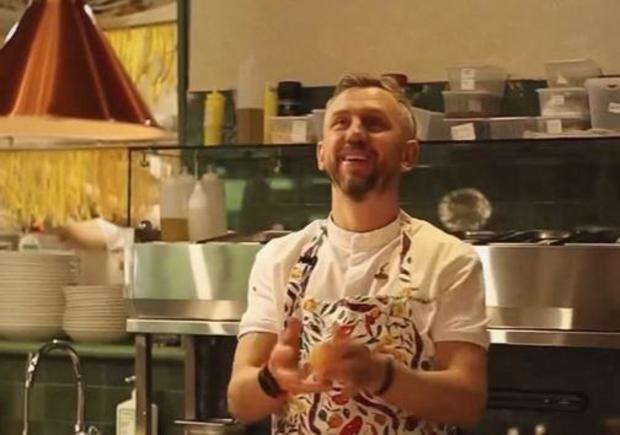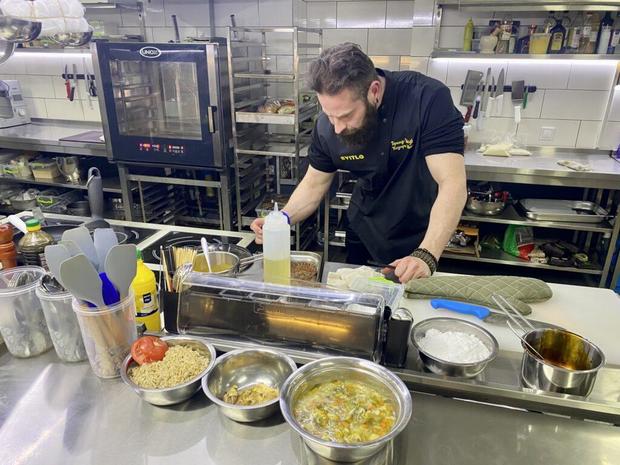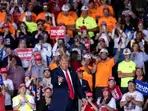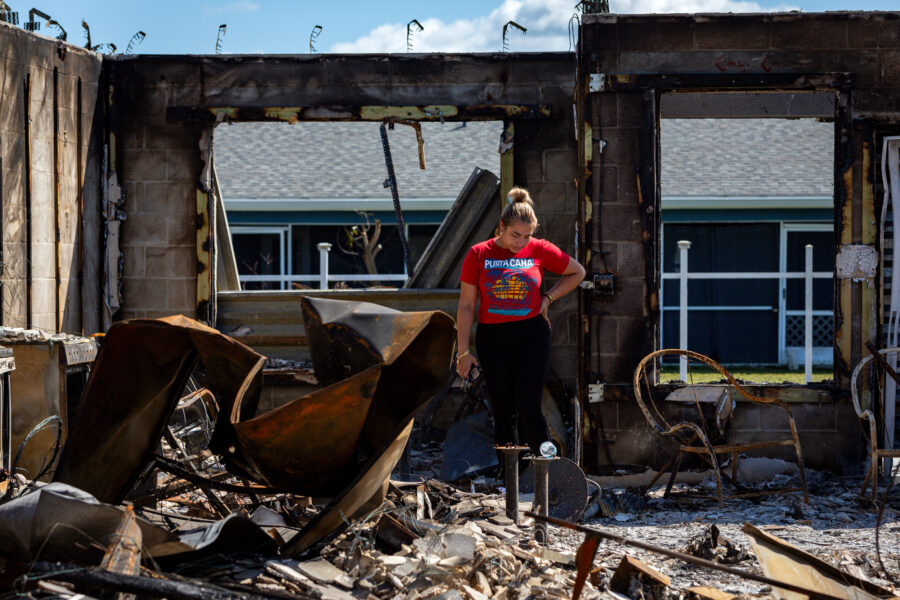Google eases wartime restrictions in boost for Ukrainian entrepreneurs, but digital hurdles remain
One month after Russia launched its full-scale invasion of Ukraine last year, Vladyslav Lysenko surveyed the damage to his egg warehouse outside Kyiv. Russian soldiers had occupied the building for weeks and destroyed most of his stock.
"At that moment," he said, "I realized that I had the opportunity to do something new."
His dream had always been to open a restaurant, so after meeting Ukrainian "MasterChef" finalist Ivan Kozyr while volunteering to help internally displaced people, he hatched a plan.
"I said I wanted to open something new, and Ivan said, 'You're crazy — open around the war?'" Lysenko told CBS News in a phone interview. "But I decided to go for it."

In May, they opened Svitlo Café in the city of Dnipro, a modern Ukrainian eatery located in the basement of a historic building, set back from the road.
But getting a restaurant up and running in wartime is full of unique challenges. There are curfews, staff shortages, logistics hurdles to moving produce around the country — and a dramatically changed digital environment.
Lysenko attempted to register the restaurant on Google Maps, but was told that due to the war, no new business locations were being added anywhere in his country.
Google lowers its war defenses
"Last year, due to an increase in off-topic contributed content on Google Maps related to the war in Ukraine, we put additional protections in place to prevent content that violates our policies," a Google spokesperson told CBS News.
In the days after Russia's invasion, Ukraine's Parliament posted a petition on social media calling on Google to restrict its map app, claiming "tags on Google maps are used by Russian terrorists" to adjust bombing locations.
Online, Ukrainians voiced suspicions that users were flagging operationally sensitive locations — such as checkpoints or military training grounds — creating targets for the Russian assault. In response, Google put a temporary hold on user contributions such as photos, videos, reviews and new businesses on Google Maps.
But just last week, the tech giant dropped those protections for most regions in Ukraine, a Google spokesperson told CBS News, allowing users like Lysenko to mark their locations, list their businesses, link to websites and share reviews.
"It has been really hard to operate in these days, and we still aren't profitable," said Lysenko. "But people haven't been able to find us — so this means everything. People check everything on Google Maps. I'm using it every day. It's absolutely necessary for a new business, doesn't matter which one you have."
Businesses need reviews "to become better"
Roman Batyrenko, the co-owner of Nonna Macarona restaurant in the western Ukrainian city of Chernivtsi — hundreds of miles from the front lines — came up against the same hurdle. After dreaming of opening a restaurant for years, he put the plan into action in 2020.
It was the coronavirus pandemic that first put his work on hold, but then Russia launched its assault, prompting Batyrenko and his business partner to postpone opening day and focus instead on buying up used cars to send to the front line.

In July, they finally opened Nonna Macarona, bringing new jobs to a local economy that, like the rest of the country, needs them badly. Ukraine's State Statistics Service says Russia's invasion shrunk the country's gross domestic product by 29.1% in 2022.
Batyrenko said the restaurant was managing, spreading the word on other platforms, but he and his partner were eager to see it pop up on Google.
As of Tuesday, Nonna Macarona did appear on Google Maps, so customers can easily locate it, and leave the reviews that Batyrenko said were vital to any business.
"Having platforms for customers to leave their reviews is very important," he told CBS News. "It allows us to become better."
Lysenko, at the Svitlo Café, was also "shocked" to find that other digital marketing sites for businesses, including TripAdvisor, prohibit reviews in the Ukrainian language, so anyone wishing to leave a review of a Ukrainian business must do so in another language, such as Russian or English.

TripAdvisor, which says it operates in 43 markets and allows reviews in 22 languages — including some native in countries smaller than Ukraine — told CBS News that it does not "have the ability to support every language, including Ukrainian."
A TripAdvisor representative noted, however, that the company was "constantly experimenting with different features and functionality" and that any feedback from that experimentation would be considered "when reviewing our supported languages in the future."
For Ukrianians like Lysenko and Batyrenko, opening restaurants has been more than just business. It has been a daring endorsement of their country and its peoples' ability to fend off a brutal attack and carry on with life.
"If you're not contributing something, you're losing," Lysenko told CBS News. "Business has to work. People have to work. Russia can break our homes, but they can't break our independence, and we will work, we will open businesses, and we will make it better."
- In:
- Technology
- Travel
- Small Business
- War
- Ukraine
- Russia
Disclaimer: The copyright of this article belongs to the original author. Reposting this article is solely for the purpose of information dissemination and does not constitute any investment advice. If there is any infringement, please contact us immediately. We will make corrections or deletions as necessary. Thank you.
Title:Google eases wartime restrictions in boost for Ukrainian entrepreneurs, but digital hurdles remain
Url:https://www.investsfocus.com









